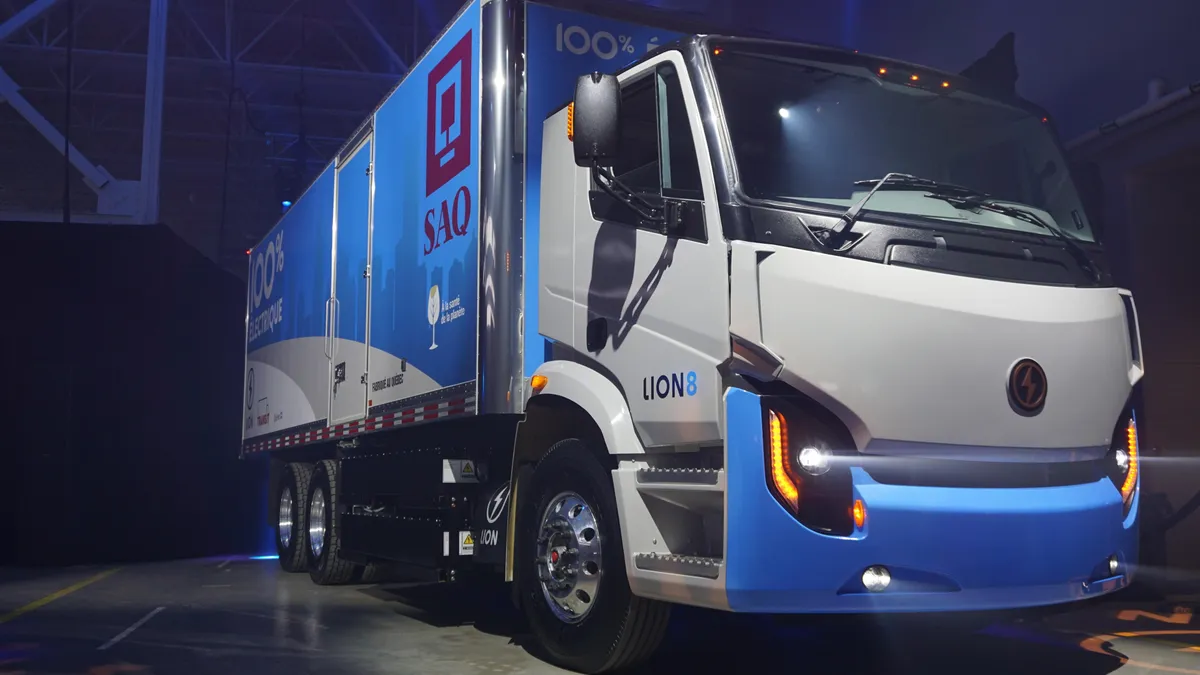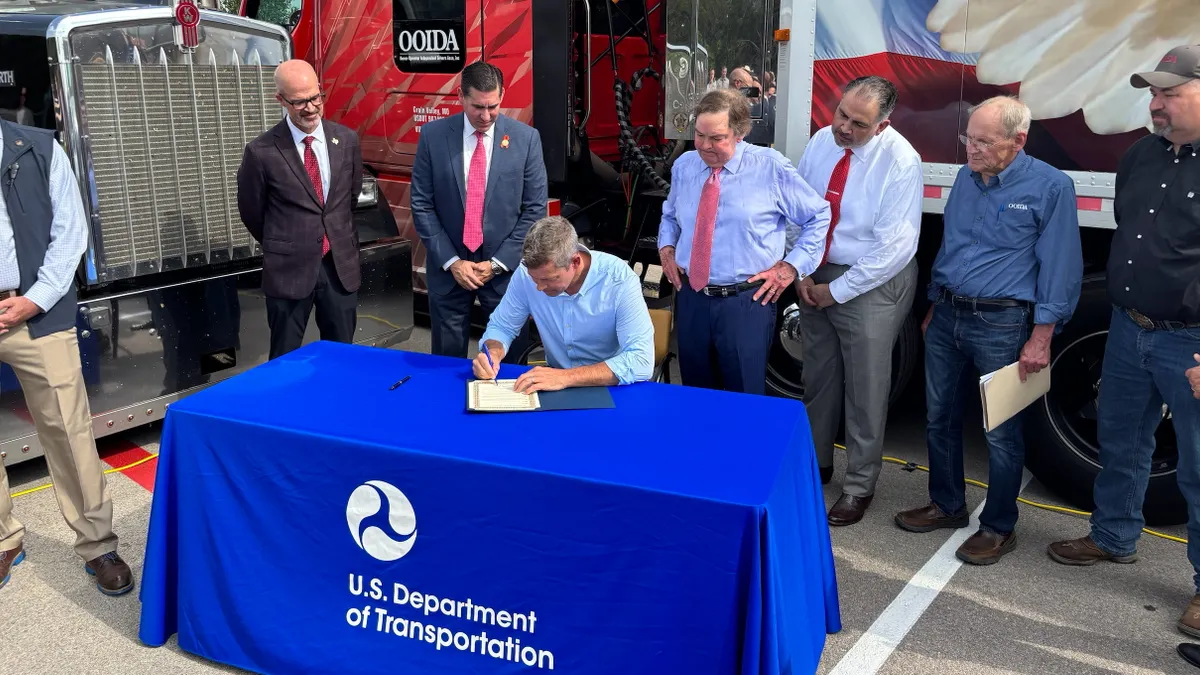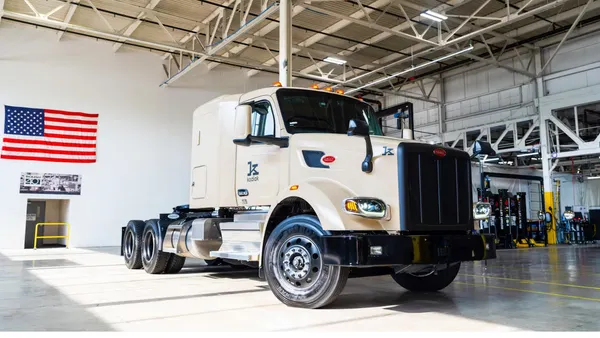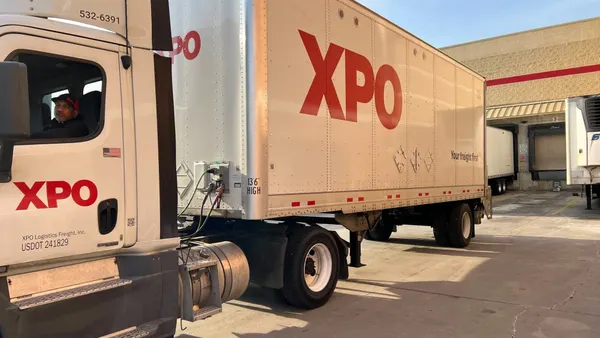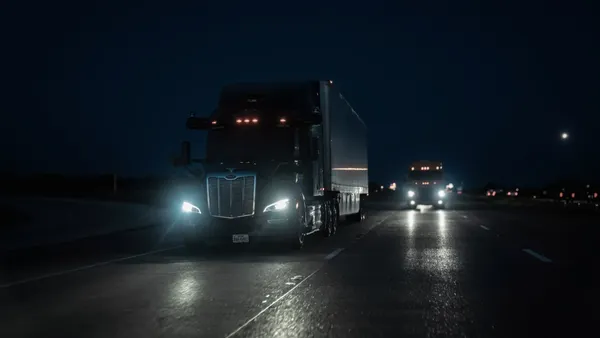Dive Brief:
- ABB and Lion Electric will partner to sell and service charging equipment in an effort to expand electric-truck mobility throughout North America, the companies announced in a Thursday news release.
- Lion Electric will have access to the complete ABB charging product line and will be sold under Lion Electric's new Lion Energy infrastructure specialty division, according to the companies.
- Lion Energy is now an end-to-end charging infrastructure solution, said Brian Alexander, Lion Electric spokesperson. Lion Energy will assist with project management, communicating with the utility companies, and design and certification.
Dive Insight:
Deployment is one of the biggest hurdles to widespread adoption of electric and fuel cell trucks. Fleets cannot just drive the trucks off the lot like they could with a diesel vehicle. In the case of electric trucks, they need charging infrastructure. For trucks using hydrogen fuel cells, they need hydrogen filling stations. It's a concern for fleets at the point of sale — one OEMs are trying to answer.
OEMs like Lion Electric and Navistar have gotten the message. In August, Navistar and In-Charge Energy agreed to have In-Charge Energy provide fleets its consulting services and internal charging infrastructure to Navistar customers. Jason Gies, director of business development at Navistar's Next eMobility solutions, said in a news release that with electric vehicles, buyers need a partner to show them how to operate it, charge it or take care of it in the long run.
Lion Electric wanted to streamline the process of selling electric buses and trucks to fleets. A multitude of chargers exist in the market, and it can be overwhelming to the buying fleets, Alexander said. The ABB alliance simplified the buying process for the fleets, said Alexander.
Michael Roeth, executive director of the North American Council for Freight Efficiency, said OEMs see the need for adding charging equipment and other infrastructure items after they make the sales.
"[Infrastructure] is definitely needed at the beginning," said Michael Roeth, executive director of the North American Council for Freight Efficiency. "With diesel, there's fueling stations all over the place ... There's electricity, but there are very limited places to charge the truck. That just takes time to develop."
Lion Electric recently stepped into the Class 8 truck market and had already been selling smaller electric trucks and buses.
Buyers will still have choices, as electric models have different charging abilities, Alexander said. A Level II charger runs on an AC current, with a maximum charge of 19.2 kilowatts. That is usually sufficient for vehicles that sit still for longer periods, Alexander said, and can charge many commercial vehicles fully overnight. The Level III DC charging allows the passing of a larger current, from about 24 kilowatts to beyond 300 kilowatts, Alexander said. The advantage of Level III is a faster charge, he said, if the model's battery can accept the faster charge.
Correction: An earlier version of this story misstated the Level III DC charging wattage. It has been updated to reflect the Level III DC charging allows the passing of a larger current, from about 24 kilowatts to beyond 300 kilowatts.


